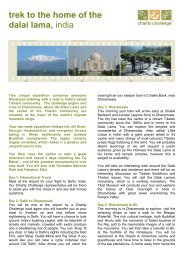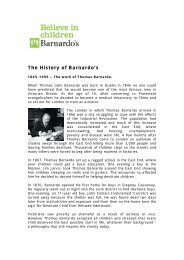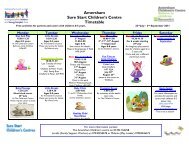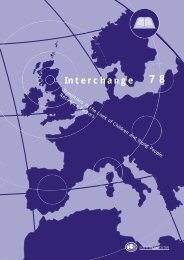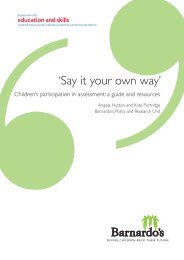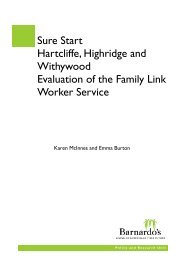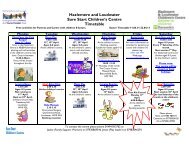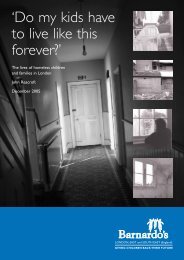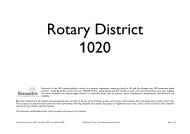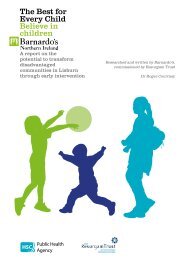Splintered Lives - Barnardo's
Splintered Lives - Barnardo's
Splintered Lives - Barnardo's
You also want an ePaper? Increase the reach of your titles
YUMPU automatically turns print PDFs into web optimized ePapers that Google loves.
PAGE 26<br />
chapter<br />
6<br />
encountered when this is explored in more depth the individuals concerned have never<br />
felt a desire or wish to abuse. Their conviction that this will be the case comes solely<br />
from ideas in the public sphere. Some adult survivors are angry and eloquent about the<br />
pernicious consequences of this model, as these examples from a research project we<br />
are currently working on16 illustrate:<br />
My mother was abused by men outside her family - she hasn't abused myself or my<br />
brother. I know many people - male and female - who were abused, some<br />
continuously and severely. They have not become abusers. I am very sceptical about<br />
this theory. The majority of abused are female, the majority of abusers are male.<br />
Where are all the female abusers?<br />
I don't agree -I haven't found myself fondling three year oIds and don't feel any<br />
desire to. It's an excuse to avoid the real issues of abuse. A person has the choice<br />
NOT to abuse. Many men go on to abuse and use it as an excuse.<br />
It confirms everything victims of abuse already believe about themselves. It offers no<br />
hope of healing, it denies the possibility of survival. It allows 'experts' to look at<br />
these distant mad, bad, sad unfortunates, sexual deviants, rather than themselves. It<br />
tends to rigidly fix men as abusers, women as victims. It removes any responsibility<br />
from perpetrators.<br />
Why, when the evidence is shaky, and the implications for child and adult survivors so<br />
negative, has 'cycle of abuse' has become widely accepted as an explanation? On one<br />
level it is a neat and accessible concept. In offering this 'common sense' explanation<br />
though it represents abuse as learnt behaviour as if it were the same as learning a<br />
nursery rhyme. Apart from the basic fact that abusing others is a very different action to<br />
being victimised, a thinking and decision-making process is involved before we act<br />
similarly or differently to events we have been witness to or experienced. Much of the<br />
knowledge developed on offenders over the last ten years shows that they are careful,<br />
deliberate and strategic in entrapping children.<br />
So powerful is this 'idea' though that even academics who recognise that most people<br />
do not 'repeat the cycle' refer to this as 'breaking' it. We need to ask ourselves why this<br />
notion has taken such a hold within public and professional thinking. Most crucially it<br />
excludes more challenging explanations - those which question power relations<br />
between men and women, adults and children. 'Breaking cycles' is a much easier and<br />
safer goal to discuss than changing the structure of social relations.<br />
An alternative perspective<br />
An alternative to all of these models has been emerging within both the child abuse and<br />
pornography/prostitution literature, and we outlined it in Chapter Three: Sexual<br />
Exploitation as Sexual Abuse of Children. This perspective begins from recognising that<br />
the production of pornography and the practice of prostitution involve acts which are<br />
…………………………………………………………………………………………………………………………………………<br />
…<br />
16. An ESRC funded qualitative study on the meanings and impacts of sexual abuse in childhood for adult women and men.



